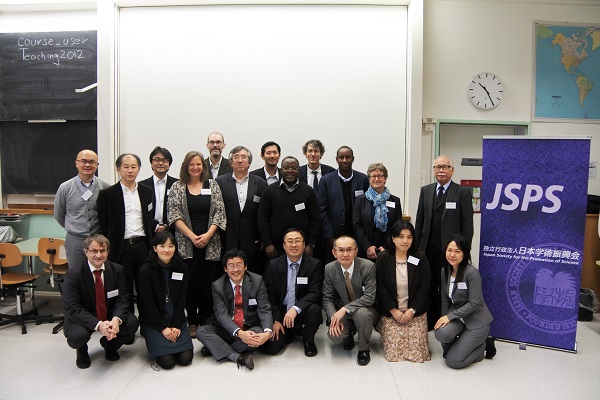No.008 - Eco-health Colloquium 2016
Eco-health Colloquium 2016
SATO Yo-Ichiro
Executive Director, NIHU
NIHU jointly organized the Eco-health Colloquium 2016 (January 11-12, 2017) in Basel, Switzerland in collaboration with the Japan Society for the Promotion of Science Bonn Office (JSPS-Bonn) and the Swiss Tropical and Public Health Institute (Swiss TPH).
The Eco-health is a holistic approach which integrates human health alongside environmental considerations such as sustainability is the more proactive choice.
For example, one effective way of controlling insect-borne disease is to eradicate the insect that carries the disease, and yet mass spraying programs using DDT have a severe impact on surrounding ecosystems. Though not the focus of a great deal of attention in Japan, which has comparatively little involvement with livestock, the importance of integrated infectious disease prevention for livestock and people has been brought to the forefront of people’s minds through the emergence of Avian Influenza and Creutzfeldt-Jakob disease. Based on an awareness of these issues, NIHU launched a research project called “Rethinking Eco-health in Asia” in 2016, with one of its members the Research Institute for Humanity and Nature (RIHN) as the representative organization.
At the colloquium, 17 researchers mainly from Japan and Switzerland held impassioned discussion and debate for two days on the themes of “Eco-health in the 21st Century,” “Food and Safety” and “Africa Session.” Incorporating the Science Café Method of debate, participants were divided into three groups, allowing them to have a more intensive exchange of opinions. One of the features of the recent colloquium was the incorporation of the issue of “food.” The issue of food is also often taken up in NIHU’s research projects, and food is a central part of healthcare as seen in the Japanese term Ishoku-Dogen, which literally means “medicine and food coming from the same source”. It stands to reason that food and health are inextricably linked and this colloquium also brought this message home strongly to participants.
Above and beyond the themes, an area in which many researchers showed interest was ethics. In previous natural sciences-based research, research that relates to health tended to focus on examination in terms of medical technology. However, in the case of problems that relate to health or food, humanities such as ethics and religious studies must also play a part. Especially when we try to think about returning profit to society through the utilization of research results in policy measures to build a better society, the deployment of research results or their imposition from a medical technology perspective alone is, if anything, even harmful. With regard to ethics, the vague idea that there will be no Eco-health research in the future without an examination in terms of intergenerational equity in the utilization of resources, bioethics and such like appeared to be the undercurrent among researchers, and this colloquium served as an opportunity to tap into this idea.
Other participants from Japan besides NIHU (RIHN) were the University of Tokyo, Tohoku University, Rakuno Gakuen University and Nagasaki University.

Group photograph of participants (January 11, 2017, TPH lecture room)
